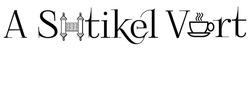Parshas Re'eh -- 26 Menachem Av 5771 / August 26, 2011 -- Vol. 2, Issue 21
In this week’s parsha, Re’eh, we learn about the mitzvah of giving tzedakah, charity. The word tzedakah is rooted in the word tzedek, which means ‘righteousness,’ or ‘justice’. Thus we learn that giving tzedakah is not a nice thing to do when you feel like it, and it doesn’t make you a generous person when you help others financially, rather it is the right and just thing to do.
Giving tzedakah is so important that we begin teaching children its importance at an early age. From the time my daughter was born, my wife would daven with her in the morning and give tzedakah. At first, Ettie would put the coin in the pushka, charity box, for Bayla, while singing a few tzedakah-related songs. After a while, Bayla was able to hold the penny but couldn’t quite put it in the slot. Eventually she was able to tap the top of the pushka with the coin, and now she anxiously anticipates dropping a few coins into the box and hearing the clankity clank.
We begin teaching the concept of tzedakah to young children because it is important that it permeate ones’ essence and become a natural instinct instead of a calculated decision. Someone asks; you give. Someone needs and you can help, so you do. It is not necessarily in one’s nature to give away something that they have worked so very hard for. However, with practice, it is possible to give with an open hand and an open heart.
There was once a chicken and a cow walking down the road. As they approached the intersection, they looked up and noticed a gigantic billboard. There was a picture of a steak and eggs; an advertisement for a local restaurant. “You see,” said the chicken, “We’ve finally made it to the big time!” “What?” replied the cow. “How can you possibly compare you to me? For you it’s a donation, for me its total commitment!”
When we give charity to others, we are not making a donation, but rather fulfilling a commitment, an obligation, a mitzvah. The next time the opportunity arises to give tzedakah and the recipient thanks you for your ‘generous donation,’ remember to thank them for giving you the opportunity to fulfill your commitment.
Giving tzedakah is so important that we begin teaching children its importance at an early age. From the time my daughter was born, my wife would daven with her in the morning and give tzedakah. At first, Ettie would put the coin in the pushka, charity box, for Bayla, while singing a few tzedakah-related songs. After a while, Bayla was able to hold the penny but couldn’t quite put it in the slot. Eventually she was able to tap the top of the pushka with the coin, and now she anxiously anticipates dropping a few coins into the box and hearing the clankity clank.
We begin teaching the concept of tzedakah to young children because it is important that it permeate ones’ essence and become a natural instinct instead of a calculated decision. Someone asks; you give. Someone needs and you can help, so you do. It is not necessarily in one’s nature to give away something that they have worked so very hard for. However, with practice, it is possible to give with an open hand and an open heart.
There was once a chicken and a cow walking down the road. As they approached the intersection, they looked up and noticed a gigantic billboard. There was a picture of a steak and eggs; an advertisement for a local restaurant. “You see,” said the chicken, “We’ve finally made it to the big time!” “What?” replied the cow. “How can you possibly compare you to me? For you it’s a donation, for me its total commitment!”
When we give charity to others, we are not making a donation, but rather fulfilling a commitment, an obligation, a mitzvah. The next time the opportunity arises to give tzedakah and the recipient thanks you for your ‘generous donation,’ remember to thank them for giving you the opportunity to fulfill your commitment.

